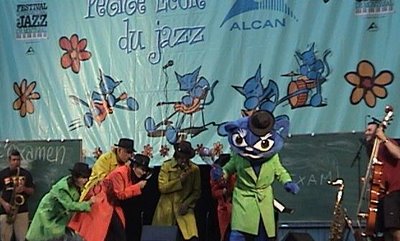I was greatly interested to pick up the current issue of the Walrus upon discovering it contained a memoir by David Gilmour, "My Life with Tolstoy," with a focus on War and Peace.
I do have to question how close Gilmour really is to W&P, though, when he describes it as starting in Anna Pavlovna's luxurious Moscow apartments — it starts in Petersburg.
I was delighted to note a web "extra" regarding translations, but it's so spare as to be utterly pointless. He mentions the "good" ones but provides no reasoning for his judgement — Garnett is his favourite, but from the print article I can only believe it's for sentimental reasons. He mentions neither Dunnigan (which I'm reading) nor Briggs (the general buzz about which makes its oversight glaring). It's improbable that he's read more than the Garnett in its entirety and he is likely basing his judgement on generally held opinions and a random sampling of passages. To be fair, that's how most of choose which translation to read, but as an extra to a mostly engaging article in a reputable publication, this sidebar is a missed opportunity.
Gilmour also makes a snide aside: "how anyone over the age of twenty-five can prefer Dostoevsky to Tolstoy is a mystery to me, rather like fancying the Rolling Stones over the Beatles." Well, I'd always thought I preferred Dostoevsky, but then I was well under 25 when I came down on that side, having read only a few works by each. Perhaps when I finish W&P I'll reassess my stance. There might be something to it, typing people by dichotomies — Tolstoy/Dostoevsky, cats/dogs, chocolate/vanilla; more apt than Gilmour's pairing by which to identify camps might be Lennon/McCartney (butI won't say which way I think they align).
Within the print article, Gilmour calls it a dull section where Pierre joins the Freemasons, and I didn't find it so. So. Let each reader's experience of it be their own.
Tolstoy and me
I made the mistake of reading the introduction to my Dunnigan edition. I immediately wished I hadn't as it contained spoilers regarding who was coupled with whom. But a couple hundred pages in, none of them had come to pass, and some even seemed contraindicated. I dare not reread the introduction for clarification at this stage. The "spoilers" in Gilmour's essay further contradicted both what I'd read and what I'd been lead to expect by other sources. So it's almost like not having read any spoilers at all.
(I previously noted that by p 177 there was still no evidence for John Bayley's claim in the introduction that "there are more happy marriages in War and Peace than in any other novel." I'm now on p 737, and there are still no happy marriages.)
So where to start? It's just so big — not just the page count; the whole thing sprawls interesting characters, pithy observations, deeply soulful descriptions, moral and spiritual questions, and millions of associations. I've dogeared almost every other page to note something Important, which has had the same effect as having taken particular note of nothing at all.
Andrei
The book begins for me on p 377. That is, really begins — this is where I realize there's more going on than soirées and troop movements.
Prince Andrei is wounded (B1, P3, ch17).
He opened his eyes, hoping to see how the struggle between the gunner and the Frenchman ended; he wanted to know whether the red-haired artilleryman had been killed or not, and whether the cannons had been captured or saved. But he saw nothing. Above him there was nothing but the sky, the lofty heavens, not clear, yet immeasurably lofty, with gray clouds slowly drifting across them. "How quiet, solemn, and serene, not at all as it was when I was running," thought Prince Andrei, "not like our running, shouting, fighting; not like the gunner and the Frenchman with their distraught, infuriated faces, struggling for the rod; how differently do those clouds float over the lofty infinite heavens! How is it I did not see this sky before? How happy I am to have discovered it at last! Yes! All is vanity, all is delusion, except those infinite heavens. There is nothing but that. And even that does not exist; there is nothing but stillness, peace. Thank God..."
This scene is often cited as being one of the most memorable in W&P. I held my breath for the next few chapters; I shifted with Andrei, in and out of consciousness, between reality and something else. He is before Napoleon, "such a small, insignificant creature compared with what was taking place between his soul and that lofty, infinite sky with the clouds sailing over it."
This bit still puzzles me: What did he see? What did it inspire in him? Not God. He's ill for some time. When he returns, his wife dies with a reproachful look on her face. For 2 or 3 years it seems Andrei is merely going through the motions; he's in a depressive state. Is he mourning (the wife he thought stupid)? Is it posttraumatic stress disorder? Somehow that clarity, that sense of what it all means, translates into inaction, the pointlessness of everything? Russian fatalism? All that is left for him is his son, he thinks, and this does not seem much to him.
There's the oak tree; we pass by it a few times. I love the oak sequences better than the lofty heavens.
A whole new sequence of thoughts, hopeless but ruefully satisfying, rose in Prince Andrei's soul in connection with that oak tree. He considered his life afresh as it were and arrived at the same hopeless but soothing conclusion as before, that it was not for him to begin anything anew, but that he must live out his life harming no one, disturbed by nothing, desiring nothing.
Andrei inspired by the first blush of love finally recognizes the oak for the metaphor it is. "All the finest moments of his life suddenly rose to his mind. Austerlitz with its lofty heavens, the reproachful look on his wife's face in death, Pierre at the ferry, that young girl thrilled by the beauty of the night, and the night itself and the moon — all this suddenly came to his mind." Wait a minute! His wife's reproach, a fine moment?! (Then, "No, life is not over at thirty-one!" Hah!)
Pierre
So Pierre doesn't believe in God. He meets a Freemason. He starts reading Thomas a Kempis, sent to him anonymously.
One thing, and one thing only, he realized as he read this book: the hitherto unknown joy of believing in the possibility of attaining perfection, and the possibility of an active brotherly love among men.
And about a week later, just like that, Pierre believes in God (p 432). Or he says he does when asked. He actually thinks about it and hesitates before answering, then very quickly reaffirms his position. Is this genuine? A sudden realization? Or does he give this response to gain access to the Brotherhood, for all the other benefits and social good he believes in? Is he fooling himself, or others?
A couple years go by and he is disillusioned. A line I really like (p 527):
"At this meeting Pierre for the first time was struck by the endless variety of men's minds, which prevents a truth from ever appearing the same to any two persons."
And he sinks into a depression (p 529).
It was all the same to him: nothing in life seemed to be a matter of great consequence, and under the influence of the depression that possessed him, he valued neither his liberty nor his determination to punish his wife.
The Russian mentality
What strikes me as evident particularly in Andrei and Pierre, but also Nikolai, is a swaying between extremes. From "Life is meaningless" to "life is full of purpose" and back again, and again, in 60 seconds.
Is this a Russian characteristic? Is this part of Russian fatalism? What is Russian fatalism anyway? Nietzsche said "Against it the invalid has only one great remedy — I call it Russian fatalism, that fatalism without revolt with which the Russian soldier, when a campaign becomes too strenuous, finally lies down in the snow. No longer to accept anything at all, to take anything, to take anything in — to cease reacting altogether." That phrase — "Russian fatalism" — is usually considered gloomy, depressing, pessimistic. Is it?
(I mean, I sway between meaning and purpose every day. I hold a "que sera sera" attitude on pretty much everything. Is that my Slavic blood? I'd like to think there can be something a little positive in this. There's only so much I have any control over at all.)
Opposites
All this back and forthing has me thinking about Pythagorean dualism or a dualism of contraries (a subject I don't know a whole lot about, but read some stuff on many, many years ago). Aside from swaying between meaning and meaninglessness, Tolstoy sways also between (obviously) war and peace, big picture and small details, masculine and feminine (on p517 he refers to "the feminine world, society").
From Dictionary of the History of Ideas: "The Pythagoreans taught that all things are composed of contraries: the one and the many, the limited and the unlimited, the odd and the even, right and left, masculine and feminine, rest and motion, the straight line and the curve, light and darkness, good and evil, etc."
I'm not sure what to make of this. My understanding is that Pythagoras blended mathematical principles with the mystical, and it's also my understanding that Tolstoy tries to apply a mathematical calculus to History, and I find this kind of exercise interesting.
Nietsche
Tolstoy said "Neitzsche was stupid and abnormal." In trying to find out a little about this thing called Russian fatalism, I came upon some quotes by Nietzsche, on women, war, truth, etc, and was astounded by how well suited many of them are to summing up the attitudes expressed in War and Peace. I'll probably look into this a bit further myself, but thought I'd ask if anyone knows anything more about their relationship or how their ideas relate.
Middlemarch
This bit reminds me of Middlemarch, this idea of tying to be a good person, the betterment of the world depending on unhistoric acts...
He surprised me by asking whether I remembered the threefold aim of the order: (1) The preservation and study of the mystery. (2) The purification and reformation of oneself for its reception, and (3) The improvement of the human race by striving for such purification. Which is the principal aim of these three? Certainly self-reformation and self-purification. Only to this aim can we always strive independently of circumstances. But at the same time just this aim demands the greatest efforts of us; and so, led astray by pride, losing sight of this aim, we occupy ourselves either with the mystery which in our impurity we are unworthy to receive, or seek the reformation of the human race while ourselves setting an example of baseness and profligacy.
Notes to self
Dreams
There's some references to the dreamlike quality of things (by Pierre, primarily, I thought, but can't find references now). I think Andrei's lofty sky counts. Also, meeting Speransky, then seeing him in a new light, as if for what he really is — somehow separating the essence from the actions, the superficial representation. And Natasha at the opera. These scenes feel like I'm watching a movie stoned, the difference between thinking in analog and digital. Look up my notes on Dostoyevsky — what story?, that dream sequence — why do I think of it now? Is there something Platonic in all this?
Music
Again, Natasha at the opera is in stark contrast to the other musical moments. She is not technically perfect but sings with "soul," charms everyone. Also, at Uncle's house after the hunt — this is my favourite and the most enchanting episode thus far.





